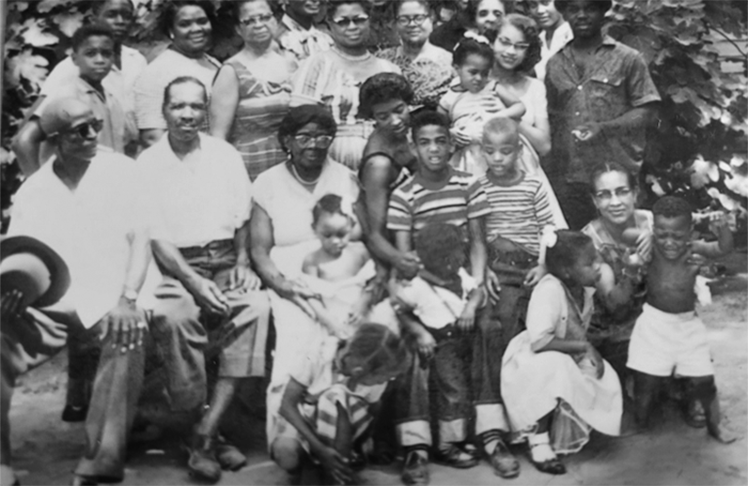
By Aaron Allen, The Seattle Medium
As a young eighteen-year-old, Vivian Lee, a retired nurse, was traveling across the border of Texas and Louisiana on her way to a family member’s wedding where she was the maid of honor. It was June 19, 1960.
As her mind was on the wedding experience, Lee’s mind was not on the date. Hungry and on the back roads of the South in 1960 finding a place to eat was difficult. So, Lee and her travel companion stopped at the nearest store to purchase bread, bologna and a soda pop.
After paying for the goods, the old white woman at the counter proclaimed, “Ya’ll must not appreciate being free no more,” said the woman to Lee. “I don’t see many people out here celebrating, I don’t see no barbeques.”
A young, socially conscious Lee wanted to react, but her chaperon grabbed her by the arm and took her out of the store.
“I was just a senior in high school,” says Lee. “[My] mother allowed me along with a friend of hers to drive across country and we didn’t have any way of knowing in those little towns where we could find a Black restaurant and back then you had white and Black water fountains and everything.”
“That day just happened to be June 19, but I hadn’t thought about it because of the wedding,” added Lee.
“I walked in the store and I was a very sophisticated lady,” recalled Lee with a laugh. “[I was an] honor student and I had kind of gotten away from really realizing the differences in the South.”
“I opened my mouth and my mother’s friend grabbed my arm and took me out of there before I could say anything,” said Lee of the incident.
This was just one of Lee’s earliest memories of celebrating June 19th or Juneteenth.
Juneteenth, or “Freedom Day” as it is often referred is the oldest nationally celebrated commemoration of the ending of slavery in the United States. The holiday is considered the “longest running African-American holiday” and has been called by some “America’s second Independence Day, as it honors the day – June 19, 1865 — when African Americans in the state of Texas belatedly received word of President Abraham Lincoln’s Emancipation Proclamation that freed the nation’s slaves.
Today, the descendants of Africa are celebrating a newly minted state and federal holiday, as both the State of Washington and the Federal government passed legislation last year recognizing Juneteenth as an official holiday.
“Our family from the time I was a toddler knew this was a special day,” says Ted Howard, Sr., a retired Seattle Public School educator, who grew up in Lubbock, Texas.
“I remember as a child asking, ‘how come we are always barbecuing and doing all these things on this day,’ and I was told, ‘this was when the slaves were really freed,’ and I said, “I thought it was the fourth of July,” Howard continued with a laugh.
While Juneteenth celebrations were exciting to Blacks, they were not met with much fanfare from Southern whites. In the early part of Black freedom, Black families and communities in the South could not openly celebrate this liberation. White southerners were well aware of the meaning of this date and in different forms refused to acknowledge its relevance, significance and even its existence.
Some families like the Howards celebrated Juneteenth in intimate family settings with good southern cooking and all the barbecue they could eat.
“You couldn’t celebrate,” says Howard. “If you worked for white folks, you couldn’t take a day off. White people were aware that June 19th was a day that Black people were going to celebrate, and you had to act like you were not celebrating, you couldn’t boast about it.”
“We never understood as children why we were enjoying a day that we had to sneak and enjoy,” continued Howard. “We never had everybody there at the same time, especially if the date fell on a weekday, it was kind of odd in the way we had to celebrate this day, and this was in the 1940’s.”
Historically June 19th carries a significant shift in the psychosocial awareness of the descendants of African-born slaves. On paper Black people were free, but in reality, in the physical world, Black people found themselves, particularly during the Reconstruction and Jim Crow eras in the South, living in a state of oppression and some were even in a perpetual state of servitude.
In Spring, Texas, Lee’s family experience was different in that their environment carried a sense of compassion on the part of white people her family grew up knowing.
The Lee family remained on the land as sharecroppers that was bequeathed to them prior to June 19, 1865. From Lee’s great grandfather to her grandmother, the Lee family remained in what she labels, “a kind of indentured slavery even after freedom.”
Howard had a similar experience growing up and says that the notion of being free at the time was different from the reality of being free and independent.
“We were still slaves in a way,” said Howard. “Jim Crow was just a reduced term, but we still worked for white people, and you couldn’t stand up or be an activist in those days or it was ‘oooh well, you don’t have a job now, boy.’ So you were still a boy, so you couldn’t boast about not being a slave because you were still a slave in their eyes, in a way.”
It has been 157 years since the declaration of freedom was conveyed to Blacks in Texas, and Black folks, as a people, despite many barriers have achieved at a rate unmatched by others under contemporary forms of oppression. Juneteenth not only celebrates the freedom of African Americans from slavery, but it also is a time when the achievements of African Americans are noted, and continuous self-development is encouraged. It is a time for African Americans to dress in celebration to show their soul, spirit and pride.
This day of national pride is celebrated with food, festivals, music and other activities to promote community cohesiveness and cultural awareness.
“In grade school we would ask about June 19th and our teacher would say it is a day of celebration and one day it will be a holiday,” says Howard. “As I got older I understood [Juneteenth’s] meaning a lot more, in that this was a day that will always be celebrated.”















